Inauguration Ceremony of Sino-Bulgarian Joint Lab on Climate Change Adaptive Governance for Rural EcosystemandChina-Bulgaria and Academic Seminar on Climate Change Rural Ecosystem Governance was successfully held
The inauguration ceremony of Sino-Bulgarian Joint Lab on Climate Change Adaptive Governance for Rural Ecosystem was successfully held on September 30 at Shanghai Jiao Tong University. Vladislav Spasov, Consul General of Bulgaria in Shanghai, GAI Hongbo, First Secretary of Science and Technology, Chinese Embassy in Bulgaria, XIE Wenlan, Vice Director of Shanghai Science and Technology Commission, Martin Banov, President of Agricultural Academy, Bulgaria, Maria Stoicheva, Vice Rector of Sofia University, Svetla Yancheva, Vice Rector of Agricultural University-Plovdiv, Bozhidar Ivanov, Director of the Institute of Agricultural Economics, Sofia, ZHU Xinyuan, Vice President of Shanghai Jiao Tong University, CHEN Ke, Deputy Director of International Affairs Division of SJTU, RUAN Xing, Dean of Shanghai Jiao Tong School of Design, Paskal Zhelev from National and World Economic University, also the Bulgarian Director of SJTU Bulgaria Center (Sofia), and CHE Shengquan, Executive Director of Bulgarian Center SJTU, together with scholars and experts from China and Bulgarian attended this ceremony. The inauguration ceremony was moderated by FU Guangyuan, Deputy Dean of Division of Frontier Research SJTU.

ZHU Xinyuan pointed out in his welcome speech that Shanghai Jiao Tong University, as a first-class and internationally renowned high-level research university, has been actively serving national strategic needs and regional innovation development, expanding scientific and technological cooperation and innovation with international research institutes in multiple dimensions and fields. In response to support the “One Belt One Road” project, SJTU has taken the lead in launching the “One Belt One Road” Science and Technology Innovation Alliance.
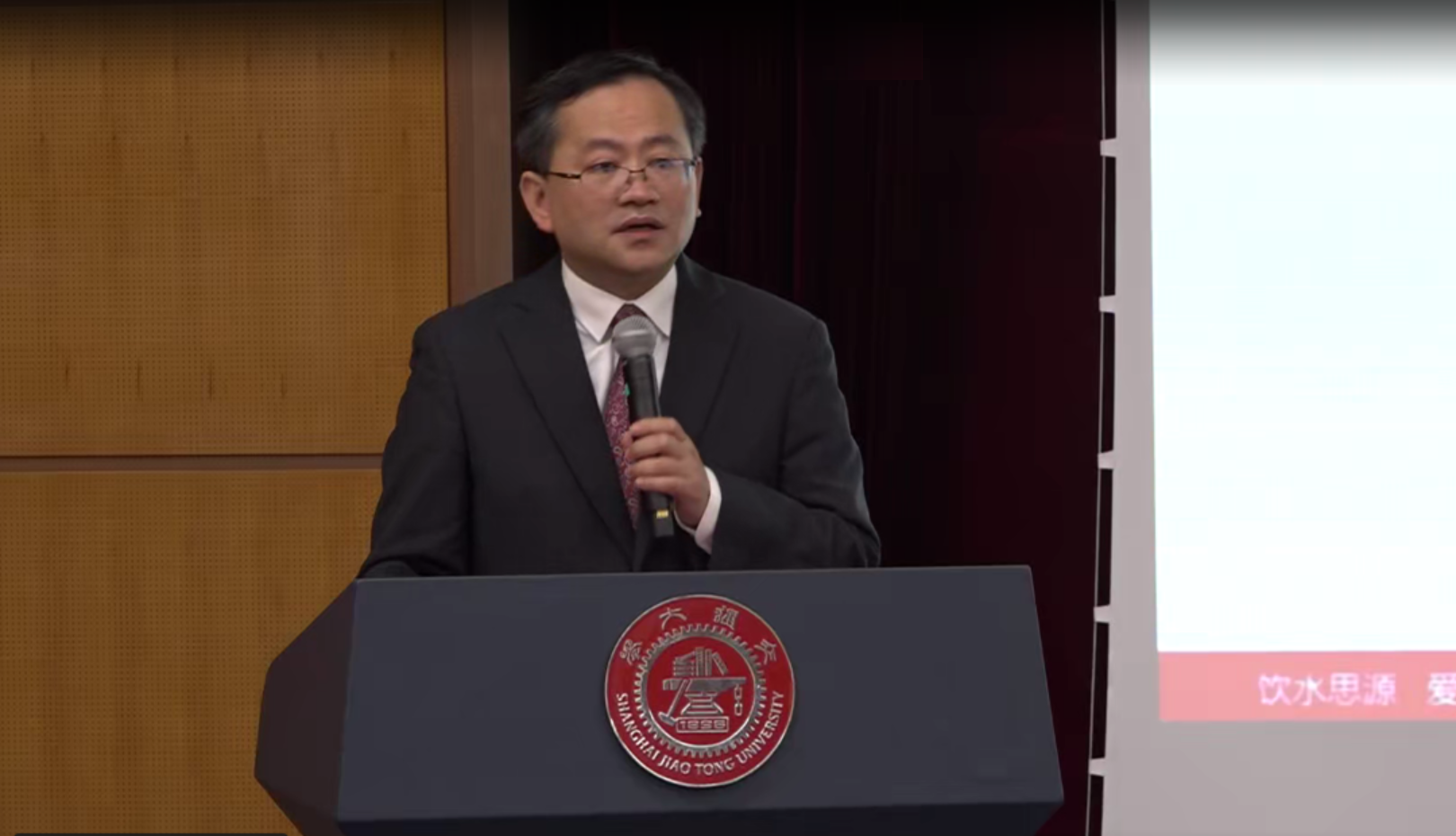
Vladislav Spasov expressed his heartfelt congratulations on the launch of this joint laboratory. Bulgaria is the second country in the world that established diplomatic relations with China and today we continue the long-standing tradition of recognizing the strong sides of each other and do our best to unite those for the benefit of our academic communities. Shanghai is the gateway of opening up, the most international and forward-looking city of China. The joint laboratory will contribute to the development of Shanghai and the world. The Consulate General of Bulgaria in Shanghai will provide the adequate support needed by both sides in order to achieve their high-level targets.
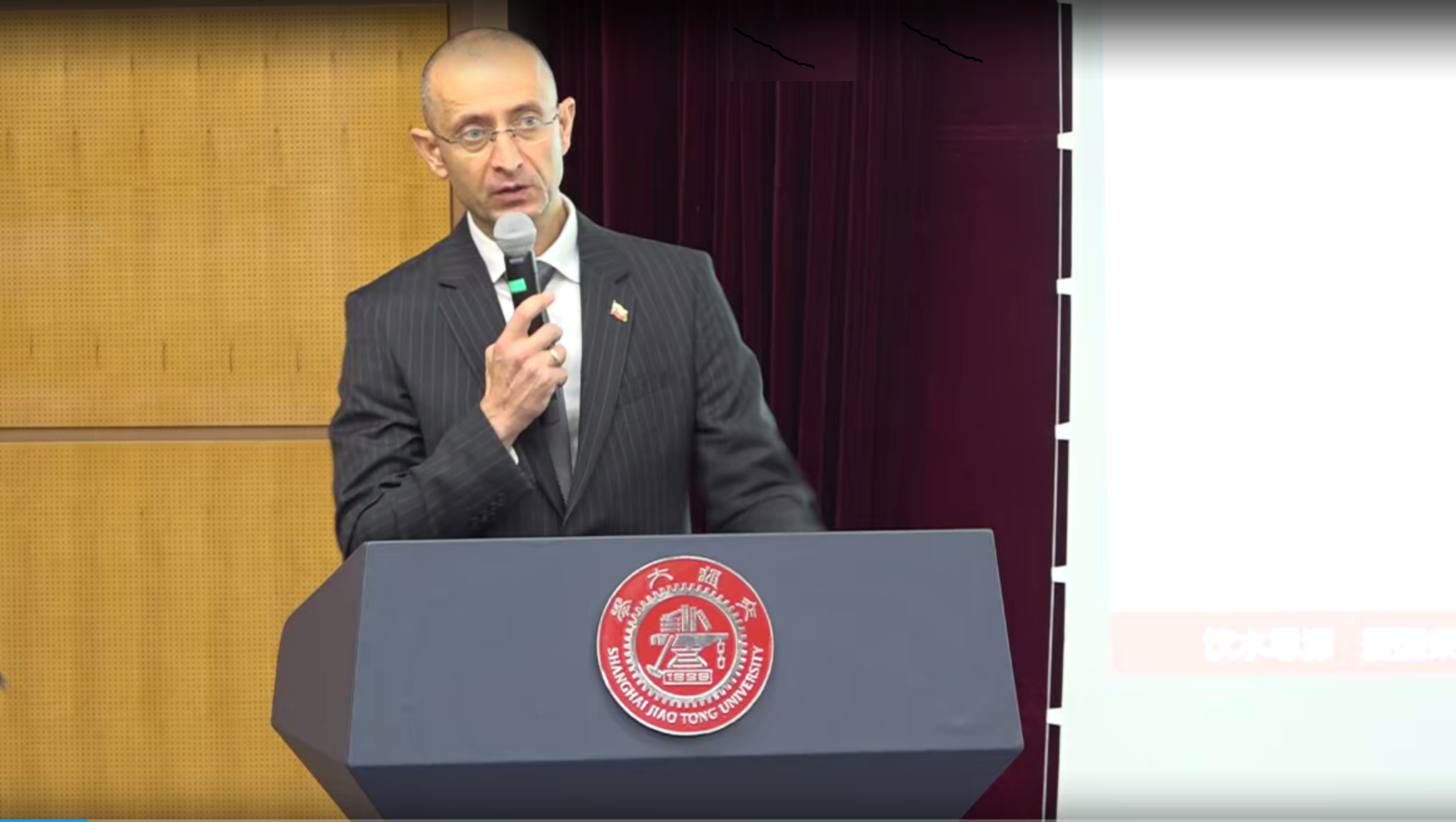
Afterwards, Martin Banov, commissioned by the Bulgarian Ministry of Agriculture, Food and Forestry, delivered a speech; GAI Hongbo, on behalf of the Chinese Embassy in Bulgaria, congratulated SJTU and its Bulgarian partners.
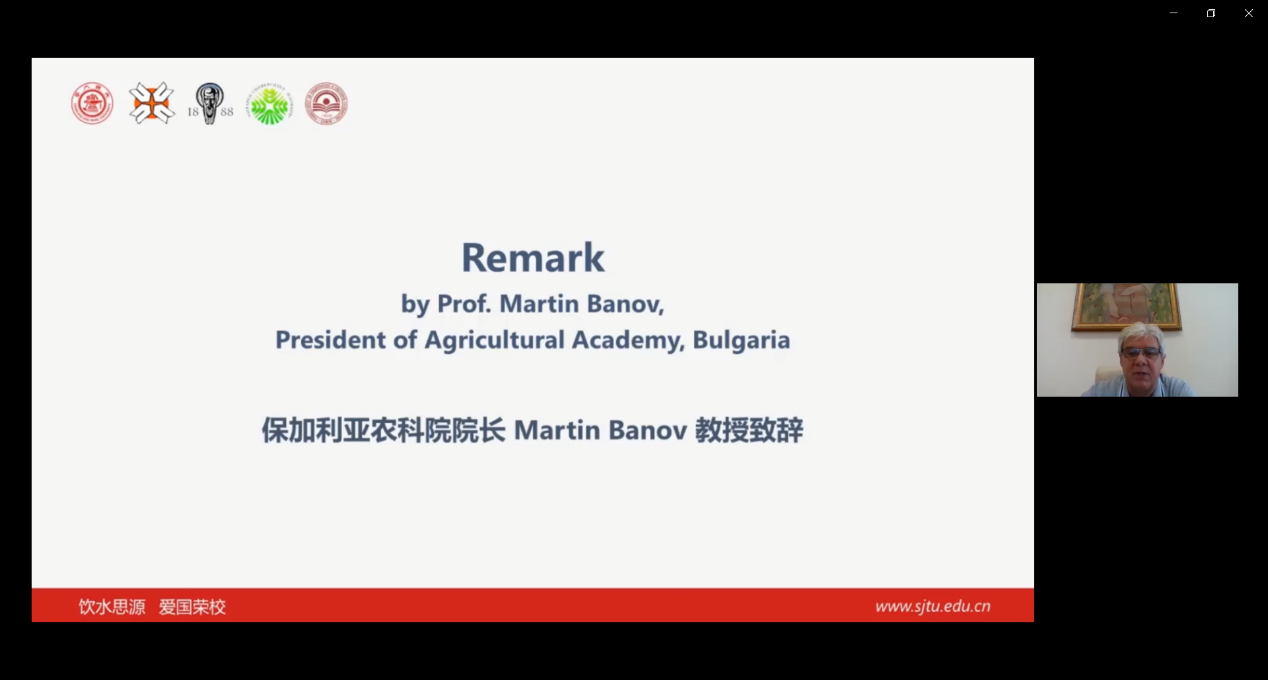
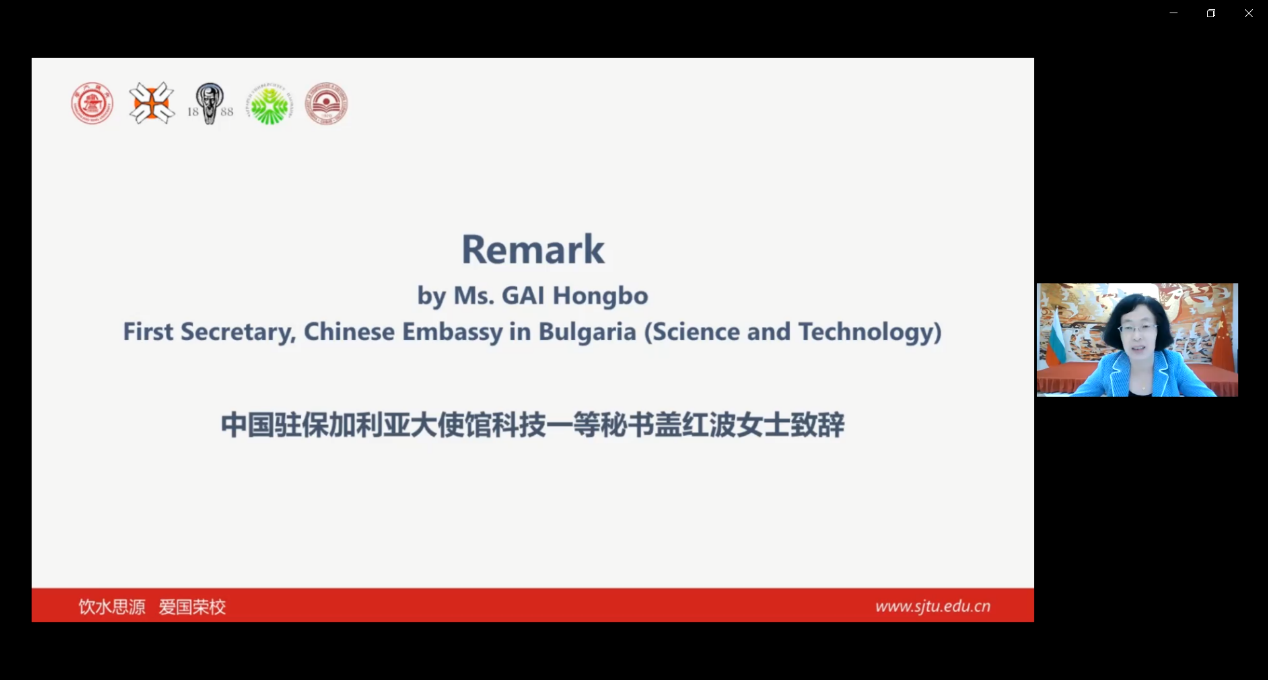
Finally, XIE Wenlan hoped that the cooperation between SJTU and universities in Bulgaria could take this cooperation as a new starting point, adhering to the innovation drive and striving to become the leading team in this field; adhering to the win-win cooperation and exploring the long-term cooperation mechanism between two sides; adhering to the application orientation and promoting the transformation and implementation of scientific research results to help the construction of the “One Belt One Road” innovation road.
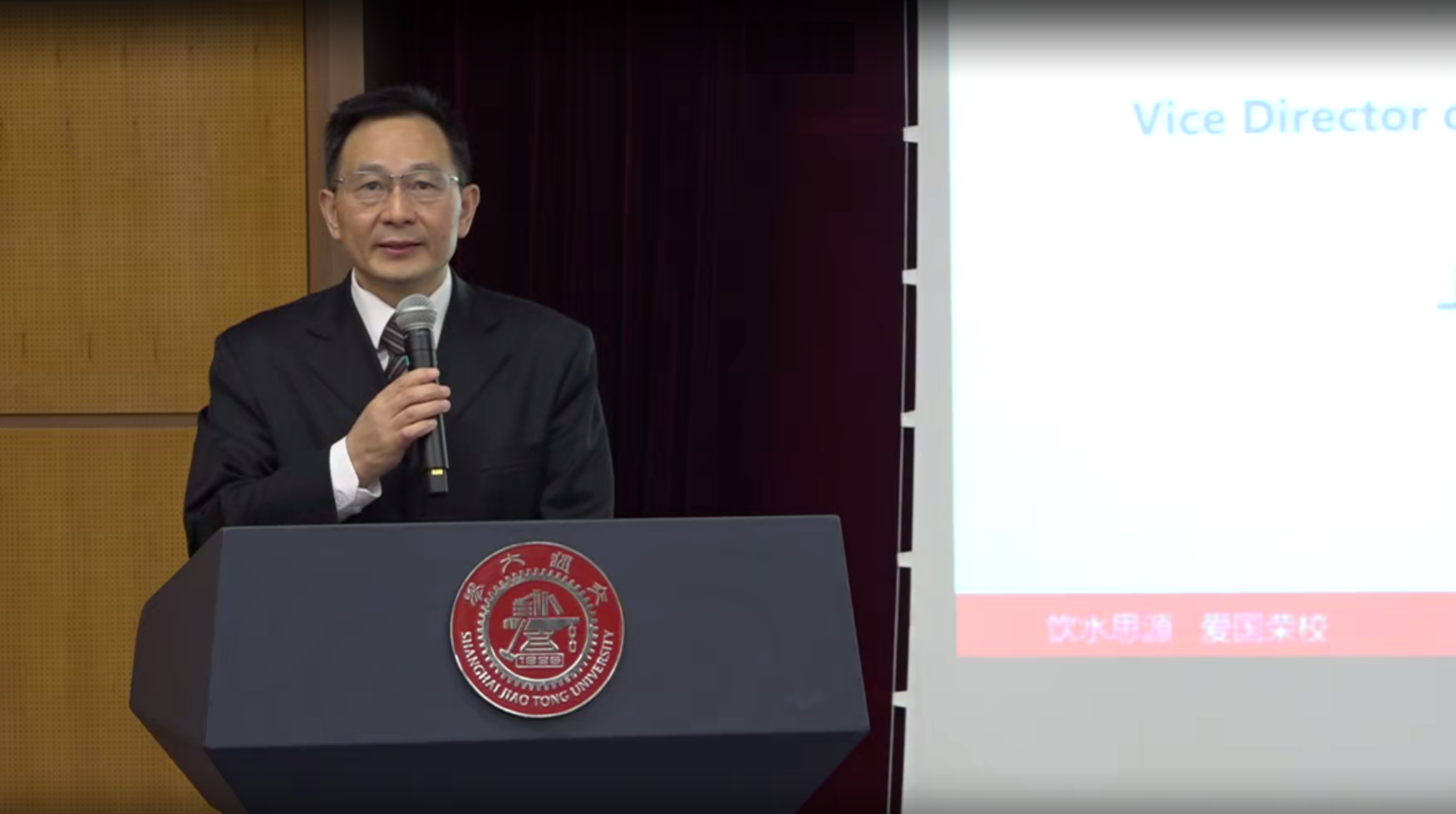
Afterwards, all guests inaugurated “Sino-Bulgarian Joint Lab on Climate Change Adaptive Governance for Rural Ecosystem” together. All attendees witnessed this moment.
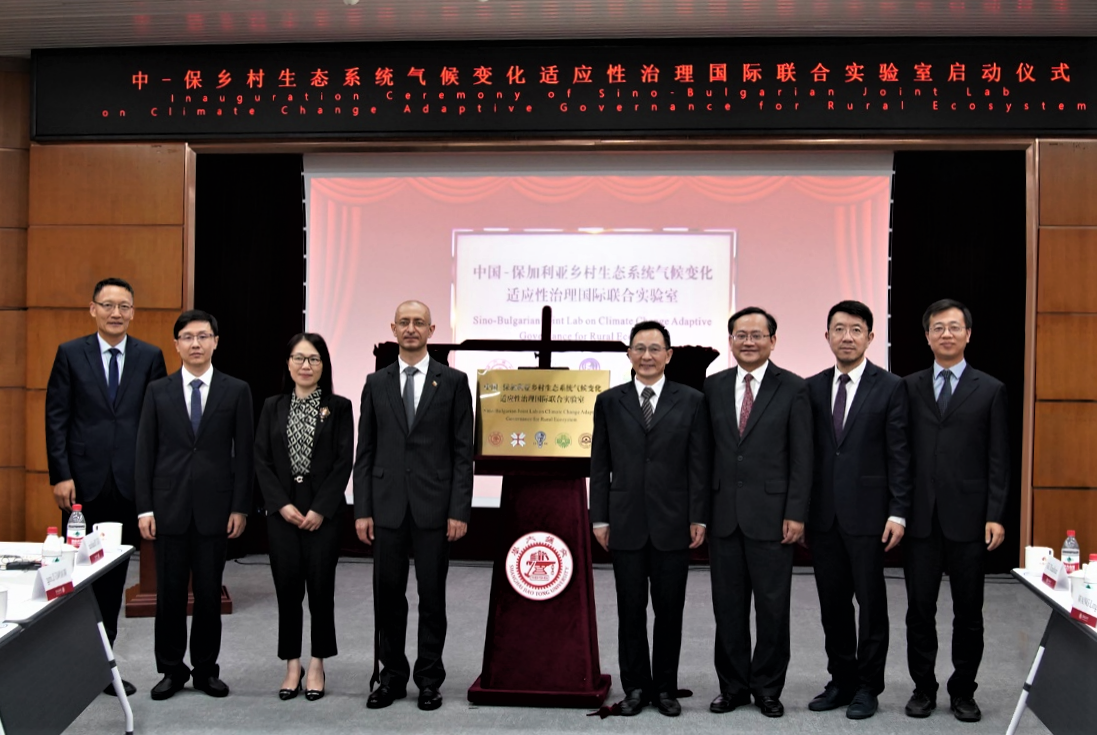
After the inauguration ceremony, XIE Wenlan and ZHU Xinyuan issued the certificate to the consultant of the joint laboratory, Vladislav Spasov accepted the it as the representative.

This was followed by a Sino-Bulgarian climate Change Adaptative Governance for Rural Ecosystem Symposium. Stelian Dimitrov, Head of the Department of Geoinformatics of Sofia University, gave a keynote speech entitled “Integrated Geospatial Approach in the Study of Natural Hazards and Risks in the Context of Climate Change”. His research combines new technologies such as hyperspectral sensors with local climate zone (LCZ) models and proposes a methodology applicable to other cities in the face of objective challenges in the study of urban heat island effect and its complex geospatial characteristics.

Professor LI Junxiang from SJTU, Vice President of the International Society for Urban Ecology (China) gave a keynote on “The Urbanization Processes and Its Impacts on the Urban Climate and Thermal Environment at Local to Regional Scales”, introducing the spatial and temporal evolution of urbanization at the city scale and the evolution of urban agglomerations at the regional scale, as well as the impact of landscape structures on surface temperature and urban heat island, and proposing nature-based solutions and implementation paths for urban heat mitigation.

Prof. CHE Shengquan from SJTU introduced the detailed information and future work of the joint laboratory with the topic of “Sino-Bulgarian Joint Lab on Climate Change Adaptive Governance for Rural Ecosystem”, from the aspects of research content, organization mechanism, expected goals, assessment indexes and funding use. Prof. Svetla Yancheva, Vice Rector of Agricultural University-Plovdiv, delivered a presentation on "Impact of Climate Changes on Agriculture and Agri-food systems - future challenges and perspectives". She introduced the basic information of agriculture in Bulgaria, the projects and achievements of University- Plovdiv of Agriculture, before analyzing the current problems and challenges faced by agriculture. The lecture was followed by an analysis of the current problems and challenges of agriculture. Prof. CHEN Ruishan from SJTU presented "Ecosystem Restoration, Climate Change and Rural Development: China and the EU Perspective ", analyzing the assessment reports published by the Intergovernmental Science-Policy Platform on Biodiversity and Ecosystem Services (IPBES), the state of ecosystems and biodiversity in China and Europe respectively, and the opportunities and challenges facing the rural areas today, and pointed out the key research areas and priority research directions for collaborative research. Prof. Bozhidar Ivanov, Director of the Institute of Agricultural Economics, Sofia, presented the requirements of the European Green Deal to reduce the use of fertilizers and pesticides in Bulgaria, and analyzed the positive effects of this strategy on the reduction of greenhouse gas emissions, with the title "Insight from the EU Green Deal for Reducing Fertilizers and Pesticides Usage in Bulgaria". The study also assesses its impact on crop production and other aspects. Prof. Dimitar Terziev and Y. Kazakova-Mateva from the University of National and World Economy presented their experience and insights on the adaptation of agriculture to climate change, including the concept of polycentric governance, with the topic of "Economics of Polycentric Governance for Adaptation of Agriculture to Climate Change", and explained in detail the definition and advantages of polycentric governance, the problems it faces and the knowledge and skills it requires.
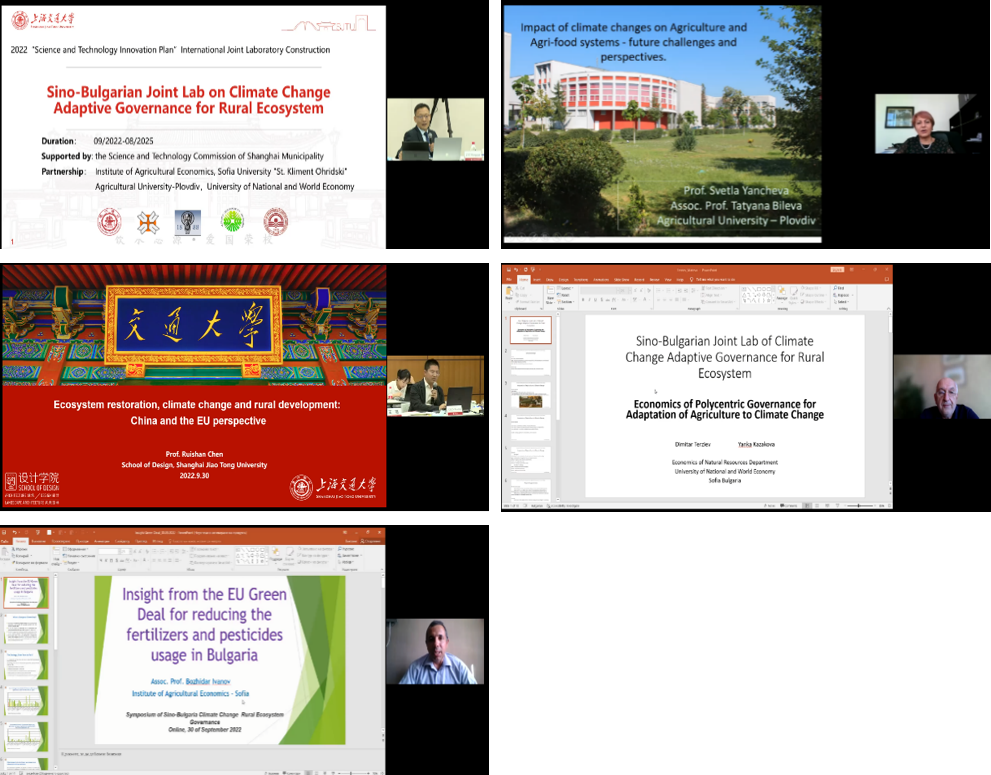
The prepare and launching phase of Sino-Bulgarian Joint Lab of Climate Change Adaptative Governance for Rural Ecosystem has received a lot of guidance and support from Shanghai Municipal Science and Technology Commission, and the International Affairs Division of Shanghai Jiao Tong University. The joint laboratory will focus on rural ecosystem governance under climate change, providing the possibility for both countries to respond to the challenges of human social development through scientific and technological innovation, and laying the foundation for deeper scientific cooperation between two countries.This was followed by a Sino-Bulgarian climate Change Adaptative Governance for Rural Ecosystem Symposium. Stelian Dimitrov, Head of the Department of Geoinformatics of Sofia University, gave a keynote speech entitled “Integrated Geospatial Approach in the Study of Natural Hazards and Risks in the Context of Climate Change”. His research combines new technologies such as hyperspectral sensors with local climate zone (LCZ) models and proposes a methodology applicable to other cities in the face of objective challenges in the study of urban heat island effect and its complex geospatial characteristics.

Professor LI Junxiang from SJTU, Vice President of the International Society for Urban Ecology (China) gave a keynote on “The Urbanization Processes and Its Impacts on the Urban Climate and Thermal Environment at Local to Regional Scales”, introducing the spatial and temporal evolution of urbanization at the city scale and the evolution of urban agglomerations at the regional scale, as well as the impact of landscape structures on surface temperature and urban heat island, and proposing nature-based solutions and implementation paths for urban heat mitigation.

Prof. CHE Shengquan from SJTU introduced the detailed information and future work of the joint laboratory with the topic of “Sino-Bulgarian Joint Lab on Climate Change Adaptive Governance for Rural Ecosystem”, from the aspects of research content, organization mechanism, expected goals, assessment indexes and funding use. Prof. Svetla Yancheva, Vice Rector of Agricultural University-Plovdiv, delivered a presentation on "Impact of Climate Changes on Agriculture and Agri-food systems - future challenges and perspectives". She introduced the basic information of agriculture in Bulgaria, the projects and achievements of University- Plovdiv of Agriculture, before analyzing the current problems and challenges faced by agriculture. The lecture was followed by an analysis of the current problems and challenges of agriculture. Prof. CHEN Ruishan from SJTU presented "Ecosystem Restoration, Climate Change and Rural Development: China and the EU Perspective ", analyzing the assessment reports published by the Intergovernmental Science-Policy Platform on Biodiversity and Ecosystem Services (IPBES), the state of ecosystems and biodiversity in China and Europe respectively, and the opportunities and challenges facing the rural areas today, and pointed out the key research areas and priority research directions for collaborative research. Prof. Bozhidar Ivanov, Director of the Institute of Agricultural Economics, Sofia, presented the requirements of the European Green Deal to reduce the use of fertilizers and pesticides in Bulgaria, and analyzed the positive effects of this strategy on the reduction of greenhouse gas emissions, with the title "Insight from the EU Green Deal for Reducing Fertilizers and Pesticides Usage in Bulgaria". The study also assesses its impact on crop production and other aspects. Prof. Dimitar Terziev and Y. Kazakova-Mateva from the University of National and World Economy presented their experience and insights on the adaptation of agriculture to climate change, including the concept of polycentric governance, with the topic of "Economics of Polycentric Governance for Adaptation of Agriculture to Climate Change", and explained in detail the definition and advantages of polycentric governance, the problems it faces and the knowledge and skills it requires.
The prepare and launching phase of Sino-Bulgarian Joint Lab of Climate Change Adaptative Governance for Rural Ecosystem has received a lot of guidance and support from Shanghai Municipal Science and Technology Commission, and the International Affairs Division of Shanghai Jiao Tong University. The joint laboratory will focus on rural ecosystem governance under climate change, providing the possibility for both countries to respond to the challenges of human social development through scientific and technological innovation, and laying the foundation for deeper scientific cooperation between two countries.